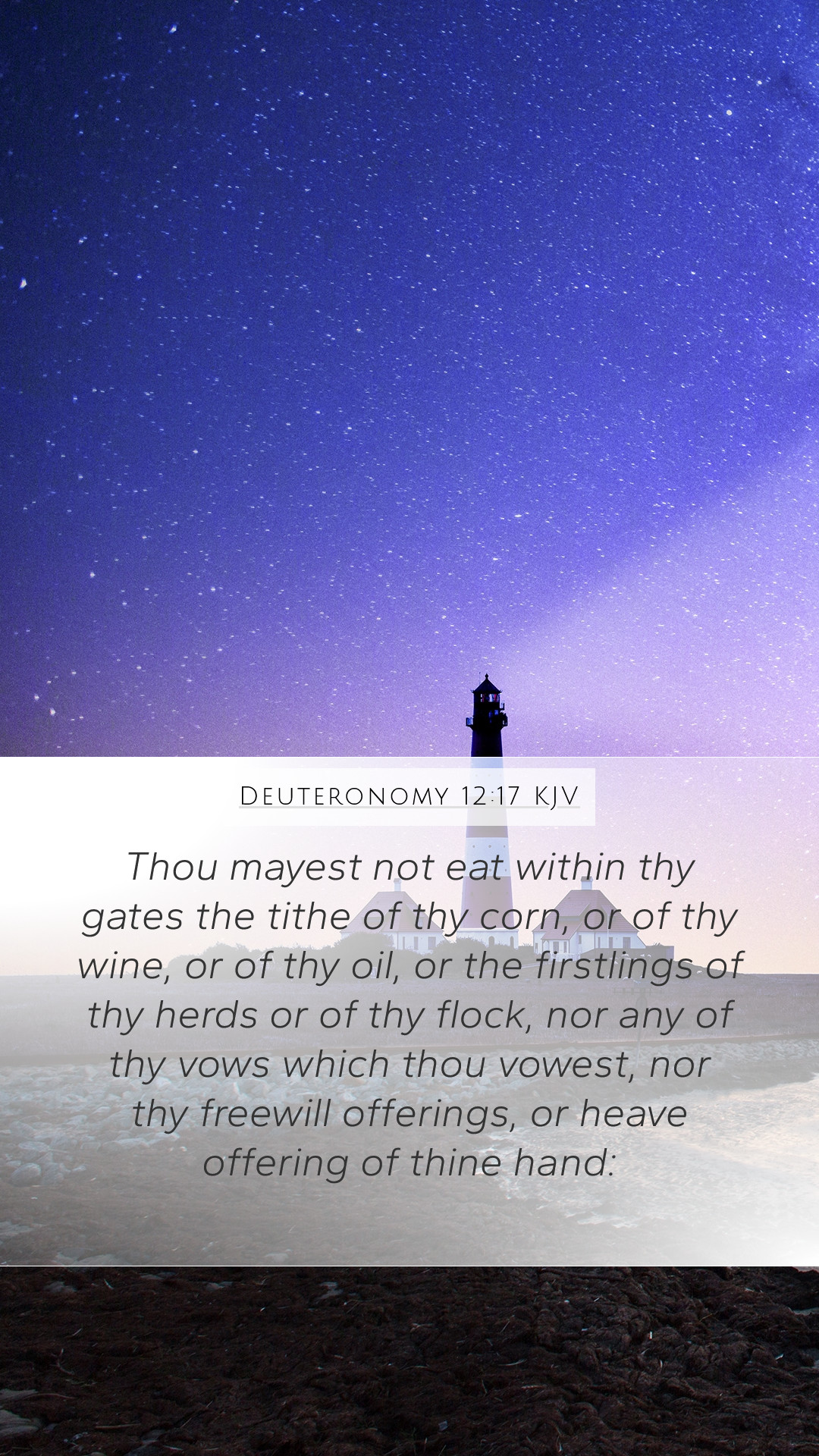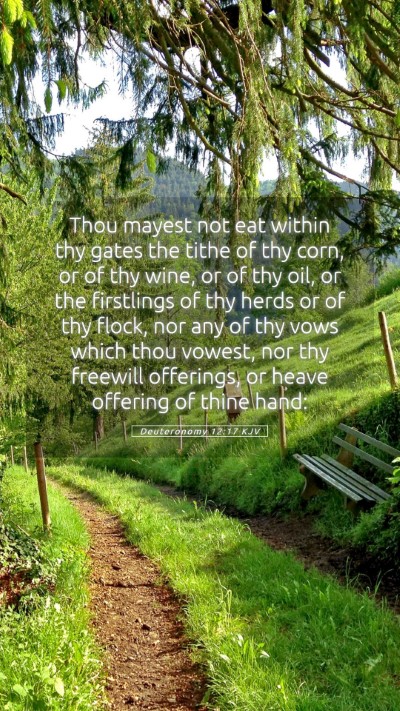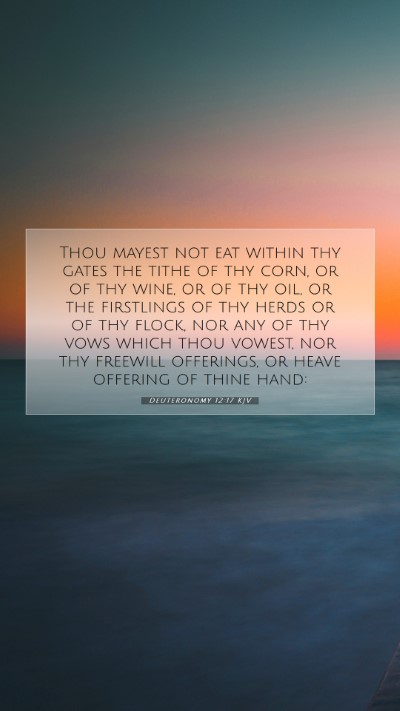Understanding Deuteronomy 12:17
Deuteronomy 12:17 states: "You may not eat within your gates the tithe of your grain or of your wine or of your oil, the firstborn of your herd or of your flock, or any of your vow offerings that you vow, or your freewill offerings, or the contribution that you present." This verse provides profound insights into the practice of tithing and the importance of dedicated worship in the Old Testament.
Verse Meaning
In this scripture, God outlines the sacredness of offerings and the regulations surrounding them. The instruction emphasizes that certain offerings must be brought to a designated place for worship, highlighting their importance in the national and communal life of Israel.
Historical Context
The Book of Deuteronomy serves as a renewal of the covenant between God and Israel, before they enter the Promised Land. It is framed within a specific historical context where proper worship practices were essential for maintaining a right relationship with God.
Insights from Public Domain Commentaries
Matthew Henry’s Commentary
Matthew Henry notes that this verse forbids the privatization of holy offerings. He emphasizes that offerings, which include tithes and firstborns, are to be presented in a manner that recognizes their divine significance. This directive ensures that worship remains collective and fosters an atmosphere of reverence among the people.
Albert Barnes’ Notes
Albert Barnes elaborates on the aspect of separation in worship. He points out that this scripture outlines provisions that delineate personal consumption versus communal offerings. He stresses that the act of bringing offerings to the central worship location is fundamental to maintaining a connection with God's covenant.
Adam Clarke’s Commentary
Adam Clarke emphasizes the importance of replicating the faithfulness in offerings and the necessity for all members of the community to engage in worship. Clarke's analysis points out that by bringing these offerings to a designated location, it promotes unity among the people and reinforces their collective identity as God’s chosen people.
Key Themes and Applications
- Significance of Offerings: Understanding the role of offerings helps one appreciate their meaning in both historical and contemporary contexts.
- Centralized Worship: This verse advocates the importance of communal worship, reminding believers to gather and bring offerings together as a sign of unity.
- Covenant Relationship: The offerings symbolize a believer's commitment to God, thus reflecting the significance of maintaining one’s relationship with the divine.
Cross References
- Leviticus 27:30: Discusses the tithe being holy to the Lord.
- Deuteronomy 14:22-23: Instructs on the tithe of produce and its usage during feasts.
- Exodus 23:19: Prohibits boiling a young goat in its mother’s milk, illustrating respect for life and proper offering conduct.
Conclusion
In summary, Deuteronomy 12:17 underscores the fundamental principle that offerings are sacred and meant for communal worship. By understanding the implications of this verse, one can gain valuable insights into the significance of Bible verse meanings and interpretations in the context of biblical exegesis. This verse serves as a reminder for all believers to consider how they approach their offerings, both materially and spiritually, promoting accountability within Bible study groups and fostering a deeper understanding of scripture.


